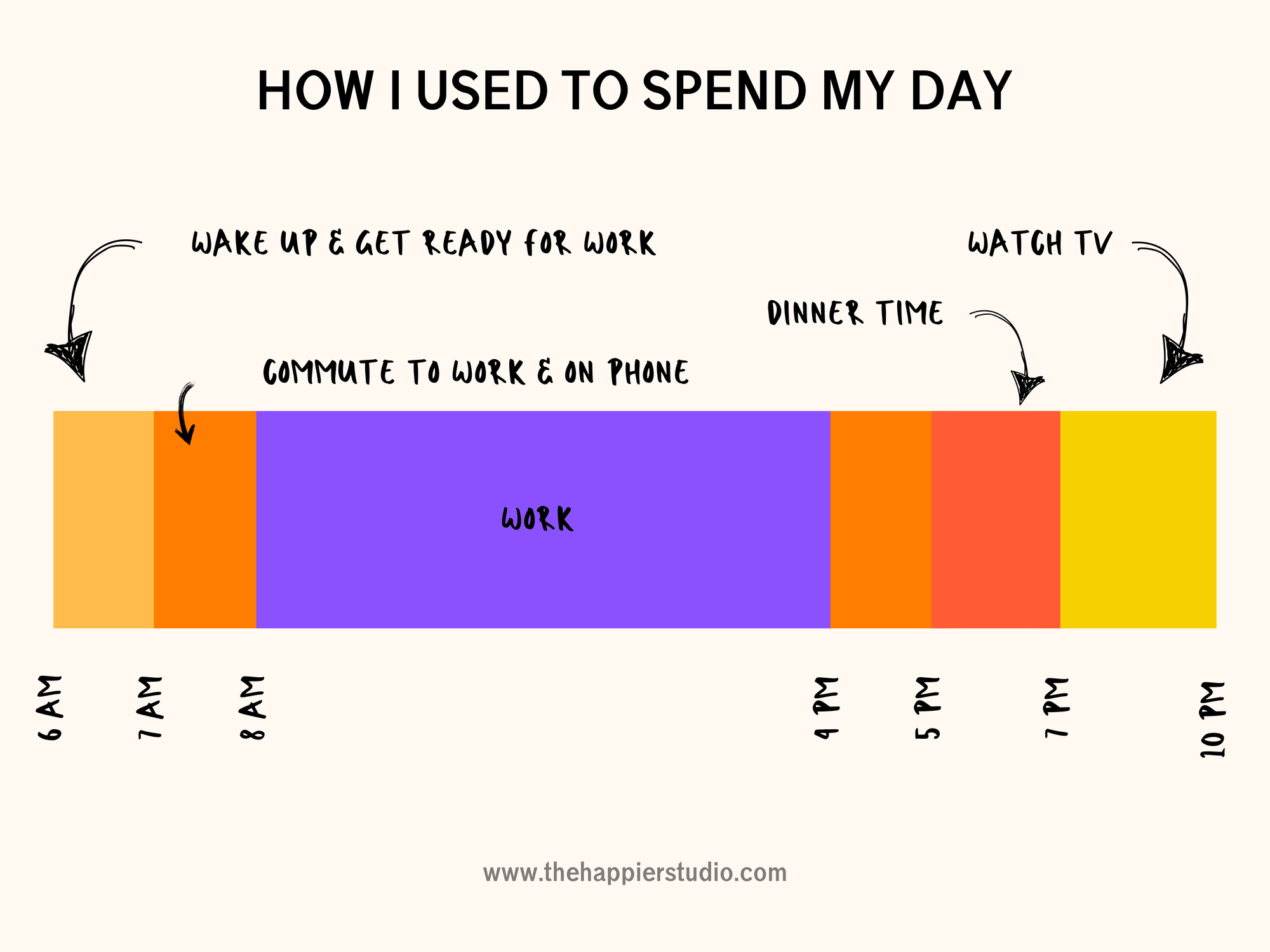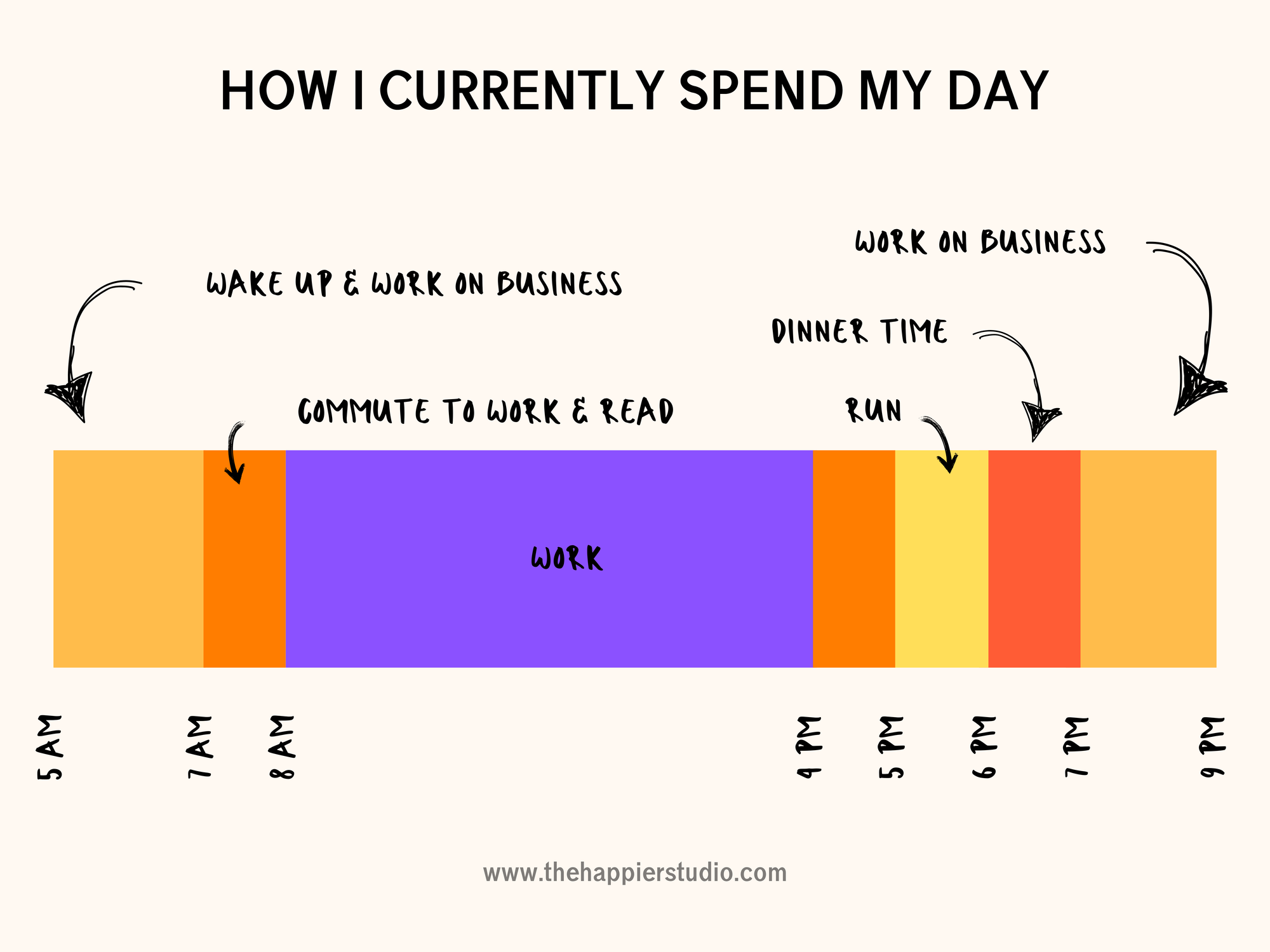Ever feel like you're racing against the clock, but no matter how fast you go, you never quite catch up? Days blur together, and there's never enough time for everything that truly matters.
A few years ago, I was stuck in that same trap—waking up, working, coming home, and repeating the cycle. It felt like my days were on repeat, each blending into the next without end.
At first, I blamed it on the big changes in my life—moving to a new country, transitioning from university to a full-time job, and dealing with the uncertainties of Covid. But after some thought, I realized the problem ran deeper. My time management was off, and more importantly, my perception of time was warped, leaving me in a constant state of feeling time-poor.
What Does It Mean to Be Time-Poor?
The term "time-poor" came to my attention during a TED talk by Associate Professor Ashley Whillans, a Harvard Business School expert on time and happiness.
Feeling time-poor means you constantly believe you don’t have enough hours in the day to do what you need or want. According to Whillans, this perception stems from two primary factors:
- Our fixation on work and financial success.
- Our overwhelming connection to technology.
I was a textbook case—pouring all my energy into work and spending any remaining time on social media or TV. No wonder I felt like there was never enough time for what really mattered.
But here’s the kicker: it wasn’t that I didn’t have enough time. The problem was how I saw my time.
The Reality of Your Daily Routine
Looking back, my routine was a major contributor to my time poverty. Here's how it went:

- 6 am: wake up, shower, prep breakfast and lunch, commute to work. Work 8 to 4, commute home, scroll through social media, binge some TV, cook, eat dinner, more TV, bed by 10 pm.
The main focus of my day? Work and tech. Hours of scrolling or watching TV without realising just how much time I was wasting.
Fast forward to today, and my routine has shifted:

- 5 am: wake up, work on my business, quick shower, get ready, commute while reading a book. Work 8 to 4, commute home, read, go for a run, cook, work on my business, and bed by 9 pm.
By waking up an hour earlier and cutting back on social media, I created more "free time" and found more fulfillment in my day. I felt time-rich—at least for a while. But then, the feeling of being time-poor crept back in.
The Illusion of Time
Here’s where the real problem lies: my perception of time was off. I thought I didn’t have enough time, even though, objectively, I had plenty.
This is what Whillans calls "time confetti"—small, scattered moments of leisure that don’t feel meaningful because they’re fragmented throughout the day.
Looking at my schedule, it made sense. Work took up large chunks of my day, and the time I set aside for myself felt broken and short. It wasn’t just about freeing up time; it was about changing how I viewed that time.
The 3 Mental Blocks Keeping You Time-Poor
Three key mental blocks prevent us from reclaiming our time:
1. Inner Conflict
We constantly battle between what we want and what we think we should do. Society tells us to be productive, chase success, and always be busy. For women, there's often the added pressure of being the primary caregiver. The result? We feel stuck between societal expectations and our personal desires.
2. Lack of Control
Feeling time-poor often comes from a lack of control. We believe that external forces—unexpected meetings, delays, or other demands—are in charge of our time. When we surrender control, we let those forces dictate our day, leading to a cycle of time scarcity.
3. Undervaluing Time
We tend to undervalue our time. Society places money and success above all else. But time is our most valuable asset, and when we don't prioritize it, we lose it to trivial activities or distractions that don’t align with our goals.
How to Break Free and Reclaim Your Time
Breaking the time-poverty cycle requires two things: changing how you spend your time and shifting how you think about time. Here’s how you can start:
- Define Your Priorities – Identify what truly matters to you and align your time with those values.
- Set Boundaries – Protect your time by saying no to tasks that don’t align with your priorities.
- Control What You Can – Focus on areas where you can influence your time rather than trying to control everything.
- Value Your Time – Recognize that time is a finite resource and treat it like one.
- Change Your Perception – Shift your mindset to see time not as something slipping away but as something abundant when spent intentionally.
Time scarcity is a feeling, not a fact. By making small changes in how you manage and perceive your time, you can break free from the cycle of time-poverty and start living a life that feels full, not rushed.